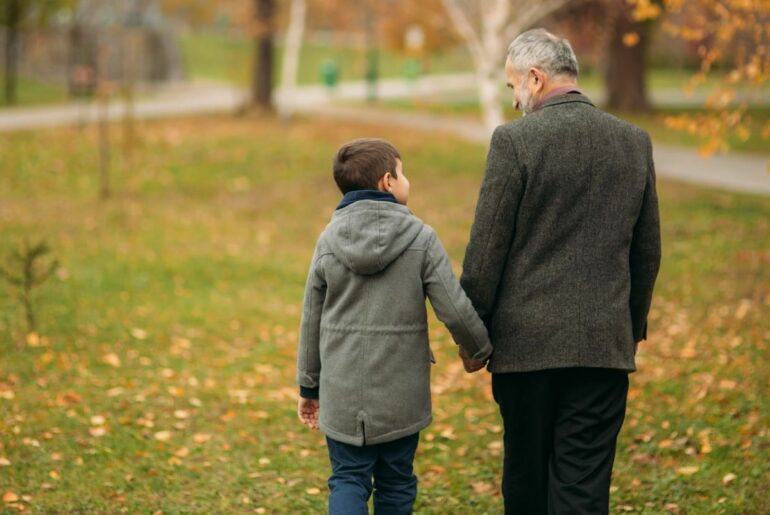Even before the COVID-19 pandemic forced people of all ages into isolation, the U.S. was already experiencing a loneliness epidemic that was severely impacting the older population. Now, almost two years into the pandemic, younger folks are experiencing the impacts of large-scale loneliness as well.
One organization is working against the loneliness epidemic by bridging the generation gap. Generations United recently released a fact sheet on the benefits of multigenerational relationships. In these relationships, young and old folks work together to build on the knowledge and resources each generation has to offer. Here’s a quick guide to the age-by-age benefits of multigenerational relationships —
Babies and toddlers experience more interactive play, and get a boost to their language development and vocabulary when they form relationships with people in multiple generations.
Elementary school children have improved literacy, better short-term memory and problem solving skills, higher levels of patience and empathy, and reduced stress levels.
Middle school children enjoy improved academic performance, better relationships with their peers, lower risk of substance abuse and depression, improved conflict resolution skills, and tend to have clearer goals for the future.
High school students in multigenerational relationships have higher self-confidence, improved social relationships, and a stronger desire to make positive change in their communities.
Young adults and college students are more civically engaged and tend to have improved occupational skills and a stronger sense of self when in multigenerational relationships.
Adults experience less anxiety over their aging parents, and experience better communication within their families.
Older adults enjoy decreased levels of social isolation, improved quality of life and sense of purpose, increased self-esteem, improved cognitive function, and increased physical strength and balance.
Fostering multigenerational relationships is beneficial for people of all ages, and builds civic engagement and community health. Here’s how to nurture multigenerational relationships in your own family —
Volunteer:
Getting your family involved in a cause that you care about is a great way to get to know folks from other generations. Look into ways you can help older adults who need support — there are plenty of organizations that deliver meals to seniors, or help them with their home repairs. There are also plenty of folks who volunteer for all kinds of causes after retirement, so you can usually find people of all ages volunteering for nonprofits and political organizations of any kind.
Start new traditions:
Reflect on your family’s traditions (it could be anything from your annual holiday celebrations to taco Tuesday) and find ways you can be more inclusive of people in other generations who may want to participate. Whether expanding the guest list for a tradition you already have — or starting a brand new one like a monthly movie night with grandma, or a monthly potluck with the seniors on your block — traditions are a great way to build multigenerational connections.
Expand your child care options:
If you’re used to having young adults and college students babysit your kids, try adding an older adult to your child care repertoire. There are lots of older folks who need to make supplemental income, and you can benefit from their wealth of wisdom and experience with kids.
Explore mentorship programs:
There are lots of great programs out there that pair older mentors with younger folks in order to provide guidance and direction as kids think about their goals for the future. Look into organizations like Big Brothers, Big Sisters and the AmeriCorps Foster Grandparent Program, or do an internet search of other mentorship programs in your area.
Celebrate older generations:
Surround your kids with reminders of the older folks in their lives, and why they are so valuable to the family. You can also stock your kid’s bookshelf with books that highlight the importance of multigenerational relationships — United Way has a great list for preschool and elementary school kids.
Each generation can learn and benefit from the particular abilities and gifts of every other generation, so it makes sense that fostering relationships with folks from diverse age groups is good for everyone involved. Nurturing multigenerational relationships not only strengthens bonds in your own family, but it strengthens the community as a whole.







